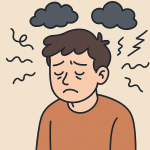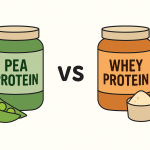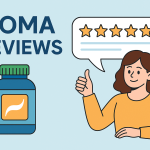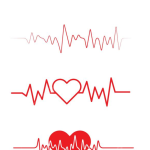Amyotrophic Lateral Sclerosis (ALS) is a debilitating neurodegenerative disease that destroys motor neurons responsible for voluntary muscle control. Early symptoms include muscle twitching, cramps, stiffness, or weakness in limbs, speech difficulties, and trouble swallowing. As ALS progresses, it affects the ability to walk, use hands, speak, and even breathe without assistance. Although ALS is progressive and currently incurable, symptom management improves quality of life.
Causes and Risk Factors
Most ALS cases are sporadic with no clear cause, while 5-10% are familial due to genetic mutations. Environmental exposures such as pesticides and heavy metals may contribute, along with lifestyle factors like smoking. Ongoing research investigates complex genetic and environmental interactions.
Types and Progression
ALS varies in onset patterns: limb-onset affecting arms or legs first, and bulbar-onset impacting speech and swallowing early on. Symptoms worsen over 3-5 years typically, though some survive longer. Cognitive changes occur in about half of patients, including mild to moderate impairments.
Nutrition Guidelines for ALS
Importance of Caloric Intake and Nutrient-Dense Foods
People with ALS have increased energy needs but often reduced appetite and difficulty eating. Maintaining adequate calorie intake with nutrient-dense foods supports muscle strength and immunity. Small, frequent meals rich in proteins, healthy fats, and carbohydrates are recommended.
Managing Swallowing Difficulties and Dysphagia
Dysphagia complicates nutrition and risks aspiration. Thicker liquids, pureed foods, and swallowing therapy can help. Feeding tubes may become necessary to maintain nutrition and hydration in later stages.
Supplements and Hydration Needs
Vitamin and mineral supplements like vitamin E, zinc, B12, and creatine may aid symptom management. Avoid dehydration and drink fluids slowly. Nutritional supplements can help maintain weight and energy.
Fitness and Exercise for ALS
Benefits of Moderate Exercise
Exercise maintains muscle function, circulation, and mental wellness. Moderate activity can slow decline early on and improve mood. Both aerobic and resistance training have benefits if carefully supervised.
Safe Exercise Practices and Adaptations
Exercise should avoid fatigue and excessive strain. Balance and safety precautions prevent falls. Customized physical therapy plans evolve as the disease progresses to maintain mobility and reduce contractures.
Role of Physical Therapy
Physical therapy supports stretching, range of motion, and daily functioning. Occupational therapy aids with adaptive devices for independence. Early intervention is key.
Preventive Care and Supportive Strategies
Managing Respiratory Health and Mobility
Respiratory function decline requires monitoring. Non-invasive ventilation prolongs survival. Mobility aids like wheelchairs and home modifications improve safety and independence.
Assistive Devices and Home Modifications
Communication devices, lifts, and accessible home environments ease daily challenges. Technology advances facilitate independence for longer.
Multidisciplinary Care and Early Intervention
Care from neurologists, dietitians, therapists, and social workers addresses holistic needs. Early diagnosis links to better symptom management and quality of life.
Mental Wellness and Emotional Support
Psychological Impact of ALS
Depression and anxiety are common due to progressive disability and loss of function. Cognitive changes may affect decision-making. Emotional distress requires attention alongside physical care.
Coping Mechanisms and Support Networks
Therapy, counseling, and support groups provide emotional relief. Communication aids help maintain social connections. Family and caregiver support are crucial.
Enhancing Quality of Life
Focus on meaningful activities, social engagement, and mental health improves well-being despite limitations. Tailored interventions empower patients and families.
Practical Daily Tips for ALS Patients
Eat small portions frequently with nutrient-rich foods.
Modify food textures for safe swallowing.
Maintain light, supervised physical activity daily.
Use assistive devices and seek physical therapy regularly.
Prioritize mental health: seek professional and community support.
Frequently Asked Questions
What causes ALS?
Most cases are sporadic with unknown causes; some are genetic.Is there a cure for ALS?
Currently, no cure exists, but treatments slow progression and manage symptoms.Can exercise benefit ALS patients?
Yes, moderate, adapted exercise improves function and quality of life.How is nutrition managed with ALS?
High-calorie, nutrient-dense diets with swallowing modifications are essential.What support is available for ALS patients?
Multidisciplinary care teams, assistive technology, and mental health support aid management.
Conclusion
ALS is a challenging progressive neurological disease, but with early diagnosis, proper nutrition, tailored exercise, and supportive care, patients can maintain quality of life longer. Mental wellness and a strong care team are vital for holistic management. If you or a loved one shows symptoms like muscle weakness or speech difficulties, consult a healthcare provider promptly. For more insights, explore our resources on neurological health, nutrition strategies, and mental wellness.
Take action today by seeking expert guidance and embracing a comprehensive care approach designed to support you or your loved ones through ALS.








